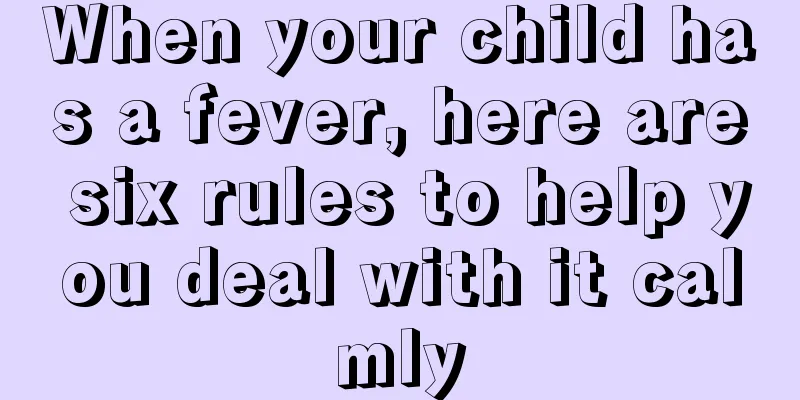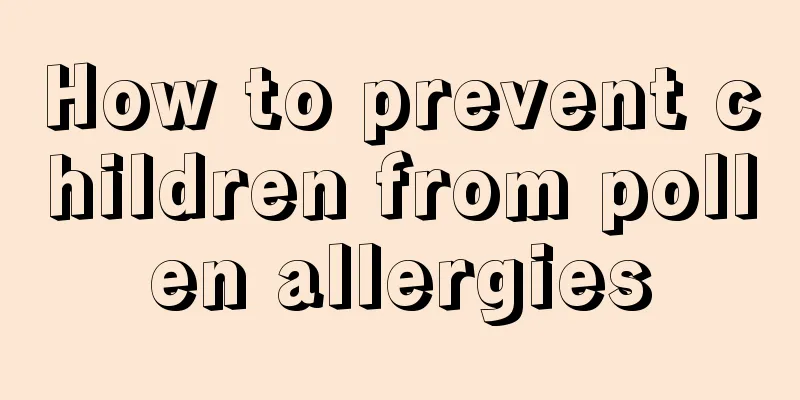What to do if your child cannot pronounce words clearly

|
When a child comes into this world from his parents' bodies, his body organs are not yet perfect and are in the development stage. Especially the functions of hearing, vision and language require a slow development process. Therefore, if a child has symptoms of unclear articulation, it may be because he is too young and his language function has not yet fully developed. However, we should also be alert to whether the child has hearing impairment. Many factors can affect a child's unclear articulation, and parents need to understand the reasons clearly. Hearing impairment can affect children's pronunciation That’s what children do in the earliest stages of language development – imitation. In other words, children will consciously listen to the pronunciation of their parents and relatives around them and imitate them deliberately. At this time, if the child has hearing problems, the child cannot hear other people's pronunciation clearly, so his own pronunciation will be inaccurate and sound unclear. The surrounding environment affects children's pronunciation We often find that when children are watching cartoons, we often have to say it several times or even raise our voices before they respond. In fact, it’s not that the children can ignore us, but that they are immersed in the story of the cartoon and don’t hear our call at all. However, children who often watch cartoons have much more accurate pronunciation than those who do not watch cartoons. After all, the characters in cartoons use relatively standard Mandarin when speaking. The tongue will limit the child's pronunciation There is a thin strip of tissue between the tongue and the floor of the mouth, which we call the frenulum. Under normal circumstances, the frenulum allows the tongue to move freely, and the tip of the tongue can naturally extend out of the mouth or lick the upper gums in the mouth. For some children, the frenulum is relatively short, which restricts the movement of the tongue and prevents the tongue from extending forward normally, resulting in unclear pronunciation. This situation is not irreversible. As they grow older, children will gradually reach a normal level and correct the problem of unclear articulation. If this continues in elementary school, parents should pay attention to it. Delayed brain development can affect children's pronunciation Some children have slower brain development, which can lead to language development disorders. At this time, the child's pronunciation may become unclear. Many children with cerebral palsy have language disorders. At this time, as a parent, on the one hand, you need to seize the time to treat your child, and on the other hand, you also need to provide your child with language training. Letting them listen and speak more can achieve the goal of enhancing children's language expression ability. Slow development can also cause unclear pronunciation Children's pronunciation gradually becomes clearer. This process is closely related to the development of the functions of various systems in the baby's body. Children are young and their development in all aspects is incomplete, which affects their accurate pronunciation. As children get older, this problem will become less of a problem. Not liking to talk will also affect children's pronunciation Some children don't like to communicate with others. It was harder than ever to get him to say a word. Such children are generally introverted and shy, and have little contact with others. Therefore, when they meet strangers, they will remain silent or try to speak as little as possible. In this case, as a parent, you should take your child to more crowded places and encourage your child often, so that your child can express his or her needs through words rather than through simple physical activities. The influence of language environment on children's pronunciation cannot be underestimated Babies have a strong ability to imitate. If the pronunciation of people around them is clear and standard, babies can learn it easily. If the people at home do not pronounce clearly or speak in dialect, babies can also learn it quickly. The most common phenomenon is not distinguishing between n and l, such as saying "grandma" as "nao nao" or "nannan" as "lanlan". Therefore, it is best to provide a language environment with standard pronunciation from the moment the baby starts learning to speak. Having said so much, I believe that parents have already understood why their children's unclear pronunciation is caused? Except for a small number of children whose unclear pronunciation is caused by health factors, the vast majority of children's unclear pronunciation is directly related to the surrounding environment, the pronunciation of the parents themselves, and the lack of correct guidance for the children. |
<<: How tall is a 10-year-old child?
>>: What is Kawasaki disease in children?
Recommend
Why does the baby snore when sleeping at night?
Adults often snore when they sleep, which may be ...
What are the initial symptoms of a dislocated hand in a child?
Children are naughty and run and jump on the stre...
Treatment of children with fever and high white blood cell count
In fact, it is very difficult to take care of chi...
It turns out that these are the real reasons for the formation of blue buttocks in babies
Many parents will find that there is always a blu...
How to quickly whiten a tanned child?
Many families are worried that their children wil...
The jaundice index of the newborn on the 4th day is 24?
It is normal for newborns to have jaundice. Most ...
What should I do if my baby's butthole is red?
Some babies have health problems, so they need to...
What should I do if my child has nosebleeds due to rhinitis? Emergency measures to keep in mind
Children with rhinitis are prone to nosebleeds, w...
What to do if the child keeps crying
It is very normal for children to cry in life. Bu...
Newborn care and feeding?
Newborn babies need extra care in terms of care a...
Ways to reduce your child's flu pain
1. Relieves Pain: During the first two days, whic...
Why does my child's cheek hurt?
Many children will feel cheek pain for a few seco...
What are the symptoms of recurrent hernia in children?
Most people believe that pediatric hernia will no...
What to do if your child has cavities?
It is well known that children prefer to eat swee...
2 months premature
Generally, fetal development takes about 10 month...









